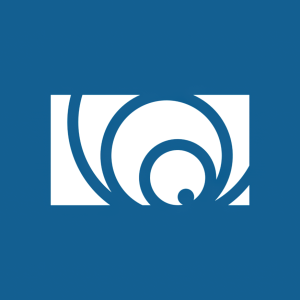Vistagen Initiates PALISADE-3 Phase 3 Study of Fasedienol for the Acute Treatment of Social Anxiety Disorder Following Positive Results of PALISADE-2
Key study underway in registration-directed PALISADE Phase 3 program for fasedienol in social anxiety disorder
Social anxiety disorder affects over 25 million Americans
“Initiating PALISADE-3 is another major milestone in our plan to develop and commercialize fasedienol as the first treatment of its kind for social anxiety disorder,” said Shawn Singh, Chief Executive Officer. “We look forward to initiating PALISADE-4 in the second half of this year and advancing our innovative pherine pipeline to deliver pioneering neuroscience to patients affected by mental health disorders and unsatisfied with current treatments.”
PALISADE-3, similar to PALISADE-2, is a randomized, double-blind, placebo-controlled Phase 3 study designed to evaluate the efficacy, safety, and tolerability of the acute administration of fasedienol to relieve anxiety symptoms in patients with SAD induced by a public speaking challenge conducted in a clinical setting. The primary outcome measure is the patient self-rated Subjective Units of Distress Scale (SUDS). The
About Fasedienol Nasal Spray
Vistagen’s fasedienol (PH94B) is a first-in-class, rapid-onset investigational pherine nasal spray with a novel proposed mechanism of action (MOA) that is differentiated from all currently approved anxiety medications, including the SSRIs and SNRI currently approved for the treatment of social anxiety disorder (SAD), as well as benzodiazepines prescribed off-label. Fasedienol’s proposed MOA regulates the olfactory-amygdala neural circuits of fear and anxiety and attenuates the tone of the sympathetic autonomic nervous system, without systemic distribution, potentiation of GABA-A receptors, or direct activity on neurons in the brain. Vistagen’s registration-directed PALISADE Phase 3 program for fasedienol is focused on the acute treatment of SAD. Fasedienol has not demonstrated any signals of abuse potential or physical dependence in any clinical trial conducted to date.
The
About Social Anxiety Disorder
Social anxiety disorder (SAD) affects over 25 million Americans. A person with SAD feels intense, persistent symptoms of anxiety or fear in certain social situations, such as meeting new people, making comments in a business meeting, dating, being on a job interview, answering a question in class, or talking to a cashier in a store. Doing common, everyday things in front of people causes profound anxiety or fear of being embarrassed, evaluated, humiliated, judged, or rejected. SAD can get in the way of going to work, attending school, or doing a wide variety of things in a situation that is likely to involve interpersonal interaction. It can lead to avoidance and opportunity costs that can significantly impact a person's employment and social activities and can be very disruptive to their overall quality of life. There is no FDA-approved acute, as-needed treatment for SAD. Current FDA-approved treatments for SAD include only antidepressants, which have a slow onset of effect (several weeks), provide limited therapeutic benefits, and have known side effects that may make them unattractive to individuals affected by SAD.
About Vistagen
Vistagen (Nasdaq: VTGN) is a biopharmaceutical company pioneering neuroscience to deliver groundbreaking therapies for individuals affected by psychiatric and neurological disorders. Five of Vistagen’s clinical-stage neuroscience pipeline candidates belong to a new class of drugs known as pherines, which are investigational neuroactive nasal sprays with innovative proposed mechanisms of action that activate chemosensory neurons in the nasal passages to impact fundamental neural circuitry in the brain without the need for systemic absorption or binding to receptors in the brain. Vistagen’s sixth investigational candidate is an oral prodrug with potential to modulate NMDA receptor activity. At Vistagen, we are passionate about delivering differentiated treatments that set new standards of care for people living with anxiety, depression, and other neurological disorders. Connect at www.Vistagen.com.
Forward-looking Statements
This press release contains certain forward-looking statements within the meaning of the federal securities laws. These forward-looking statements involve known and unknown risks that are difficult to predict and include all matters that are not historical facts. In some cases, you can identify forward-looking statements by the use of words such as “may,” “could,” “expect,” “project,” “outlook,” “strategy,” “intend,” “plan,” “seek,” “anticipate,” “believe,” “estimate,” “predict,” “potential,” “strive,” “goal,” “continue,” “likely,” “will,” “would” and variations of these terms and similar expressions, or the negative of these terms or similar expressions. Such forward-looking statements are necessarily based upon estimates and assumptions that, while considered reasonable by Vistagen and its management, are inherently uncertain. As with all pharmaceutical products, there are substantial risks and uncertainties in the process of development and commercialization and actual results or developments may differ materially from those projected or implied in these forward-looking statements. Among other things, there can be no guarantee that any of the Company’s drug candidates will successfully complete ongoing or future clinical trials, receive regulatory approval or be commercially successful, or that the Company will be able to successfully replicate the result of past studies of its product candidates, including fasedienol, itruvone, PH80 or its other drug candidates. Other factors that may cause such a difference include, without limitation, risks and uncertainties relating to conducting and/or completing ongoing clinical trials, including PALISADE-3; launching planned clinical trials for any of our product candidates, including fasedienol; the Company’s submission of an
View source version on businesswire.com: https://www.businesswire.com/news/home/20240401402849/en/
Investors:
Mark McPartland
(650) 577-3606
markmcp@vistagen.com
Media:
Caren Scannell
(650) 577-3601
cscannell@vistagen.com
Source: Vistagen







